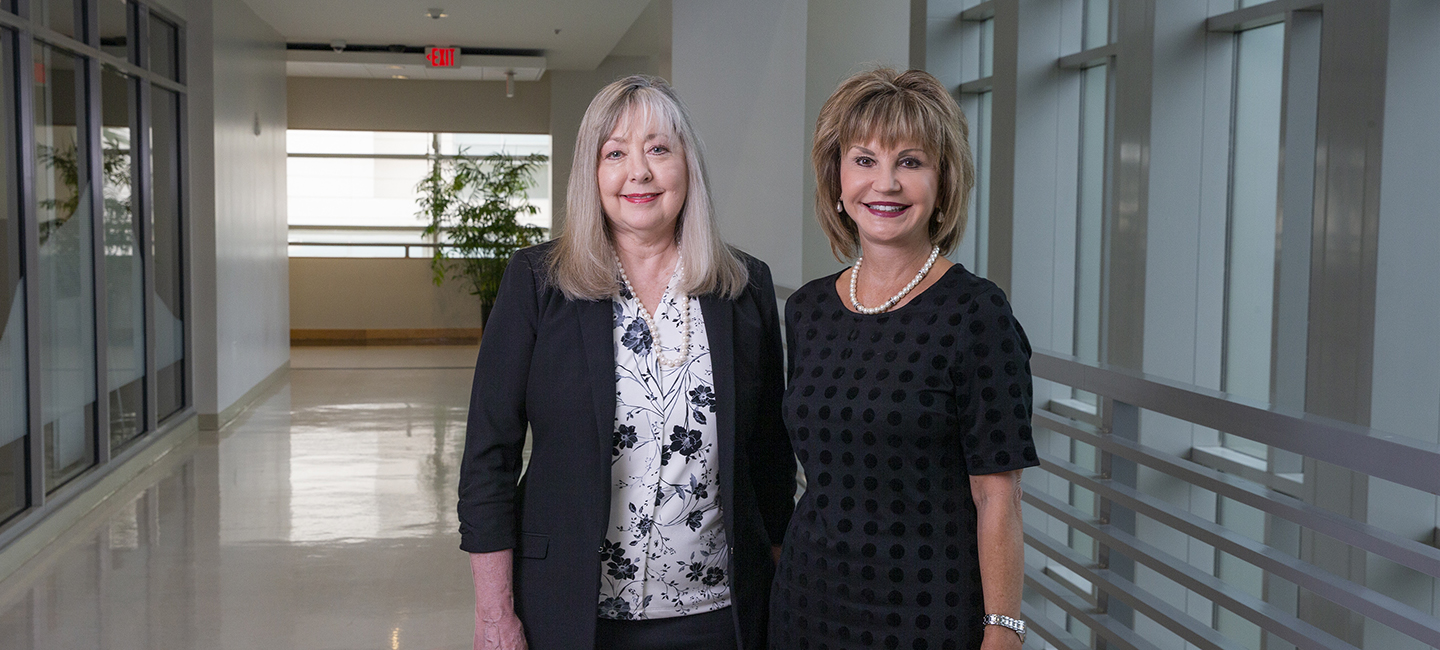Moffitt Nursing Achieves Magnet Designation
In 2019 Moffitt earned its second designation as a Magnet facility by the American Nurses Credentialing Center, the credentialing body of the American Nurses Association.
The designation was granted following a three- day site visit with more than 550 interactions with nurses and interdisciplinary team members to confirm compliance related to 88 standards. The designation recognizes nursing professionalism, teamwork, quality patient care and innovations in nursing practices.
Only 8% of U.S. hospitals achieve designation as a Magnet organization, a recognition considered the gold standard of excellence in nursing. Once earned, the designation is not guaranteed to renew. Moffitt first received Magnet designation in 2015, and almost immediately after the exuberant celebration began planning and working toward meeting and exceeding the redesignation expectations faced in 2019.
Especially challenging was that Moffitt had to apply for redesignation using the manual newly released in 2019, which expected Moffitt to show even more quality indicators related to nursing satisfaction and patient satisfaction than required.
“The American Nurses Association had revised the manual, and we happened to be the very first group that had to write our application based on the new manual’s standards and be surveyed under the new manual,” said Jane Fusilero, RN, MSN, MBA, NEA-BC, vice president, Patient Care Services, and chief nursing officer, who led the Magnet steering committee. During the redesignation process, Moffitt earned six exemplars which demonstrated exemplary professional practice. “An exemplar means that an institution went far and above a particular standard, making the institution an example,” said Leslie Rogers, PhD, MBA, BSN, RN, director, Surgical & Procedural Units and Magnet Program Director. Rogers guided the Magnet application process, which included all campuses, all levels of nursing and teammates across the cancer center.
Several of the exemplars were focused on patient engagement, patient education and courtesy and respect, all of which outperformed the benchmark measurements for these categories.
“It is so difficult to achieve exemplars using the new manual, and we had six!” said Fusilero.
During the site visit, the appraisers verified that Nursing is actively involved in and leading many innovations at the cancer center. “The Nursing team was especially proud of receiving an exemplar in the category of New Knowledge and Innovation,” said Fusilero.
In addition to recognizing the innovative, sustained use of scalp cooling technology, the appraisers explored several extraordinary examples of innovation in meetings and unit visits. An amazing example of an innovation within the cancer center involving nursing is the use of a simulation tool for education, the Simulation Toolkit for Chemotherapy Administration. Developed by Moffitt leaders, the toolkit promotes safe chemotherapy administration and patient safety. The toolkit was made available for free use to other organizations, and more than 100 organizations have downloaded the toolkit. Additionally, Moffitt developed a full day of simulation to support nurses in learning complex skills related to chemotherapy administration, communication techniques and more.
“These scenarios not only engage the clinical nurses at Moffitt Cancer Center, but they also engage the Patient-Family advisors, supportive care staff and DNP [director of nursing practice] students in the provider role,” said the Commission on Magnet in its report in recognition of Moffitt’s second designation as a Magnet organization.
“Achieving an exemplar in Innovation is uncommon. Also, Moffitt went into the site visit with no deficiencies,” said Rogers, who also has served as a Magnet appraiser for 17 years. “Of course, everyone wants that, but it is so rare.”
“Achieving Magnet designation not only demonstrates nursing excellence, but it also shows a commitment to the patient and commitment to the quality care we provide to them,” said Fusilero.
As Moffitt continues to expand, Magnet standards are involved in all areas. Fusilero and Rogers already are planning for 2023 when the next redesignation application will be due.
“The Magnet process is a journey,” said Rogers. “You don’t arrive at Magnet and say, ‘we got there and we are done.’”
MAGNET DESIGNATION STANDARDS ARE TIED TO PATIENT CARE
Magnet-designated facilities consistently demonstrate:
- Higher patient satisfaction with nurse communication, availability of help, and receipt of discharge information
- Lower risk of 30-day mortality and lower failure to rescue
- Lower rates of falls
- Higher job satisfaction among nurses
In order to be Magnet designated, a facility must undergo a rigorous process, which includes a lengthy application, on-site visit, review by the Commission on Magnet Recognition and show compliance in more than 80 areas, some of which include:
- Competent, dedicated and skilled nurses
- Continued innovation within staff knowledge
- Clinical practice and systemic improvements
- Empowered staff properly prepared to face all challenges
- Outcomes measurement systems in place throughout the entire organization
- Visionary leadership transforming the organization to meeting changing needs


